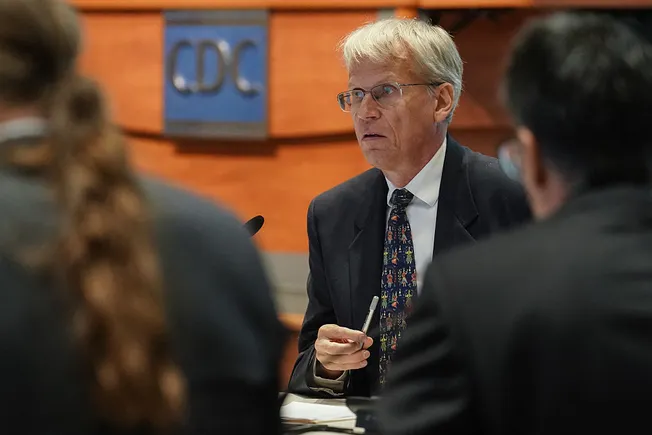Robert F. Kennedy Jr.’s appointed panel of federal vaccine advisers convened for the first time after the previous members were dismissed by the Health and Human Services secretary. The new panel, led by Martin Kulldorff, a biostatistician and epidemiologist, emphasized the importance of evidence-based medicine in making vaccine recommendations.
During the meeting, the advisers delved into the evidence supporting the use of COVID-19 vaccines and expressed intentions to evaluate other established vaccines such as those for hepatitis B and measles. Kulldorff stressed that vaccines are not all good or bad, and the committee’s focus is on using data-driven approaches to make informed recommendations.
The Advisory Committee on Immunization Practices (ACIP) plays a vital role in advising the CDC on vaccine guidelines for infectious diseases, which in turn influence insurance coverage requirements. The recent reshuffling of the panel by Kennedy has sparked controversy within the medical community, with criticism from medical associations and calls for meeting delays.
The panel’s agenda included discussions on messenger RNA vaccines for COVID-19, with concerns raised about the lack of placebo-controlled data and underreporting of adverse events in monitoring systems like the Vaccine Adverse Event Reporting System (VAERS). The meeting also addressed RSV immunization in children, with a focus on the efficacy of vaccines and potential impacts of co-circulating viruses.
On the second day of the meeting, advisers are set to vote on recommending the use of the RSV antibody Enflonsia for infants under 8 months old who are at risk of RSV during their first season. The panel will also vote on an updated resolution for RSV prevention in the Vaccines for Children program.
The discussions during the meeting underscored the importance of rigorous evaluation of vaccine efficacy and safety, while also highlighting the significant impact that new vaccines like Enflonsia can have on public health. The panel’s commitment to evidence-based decision-making will shape future recommendations on vaccine use for infectious diseases.


